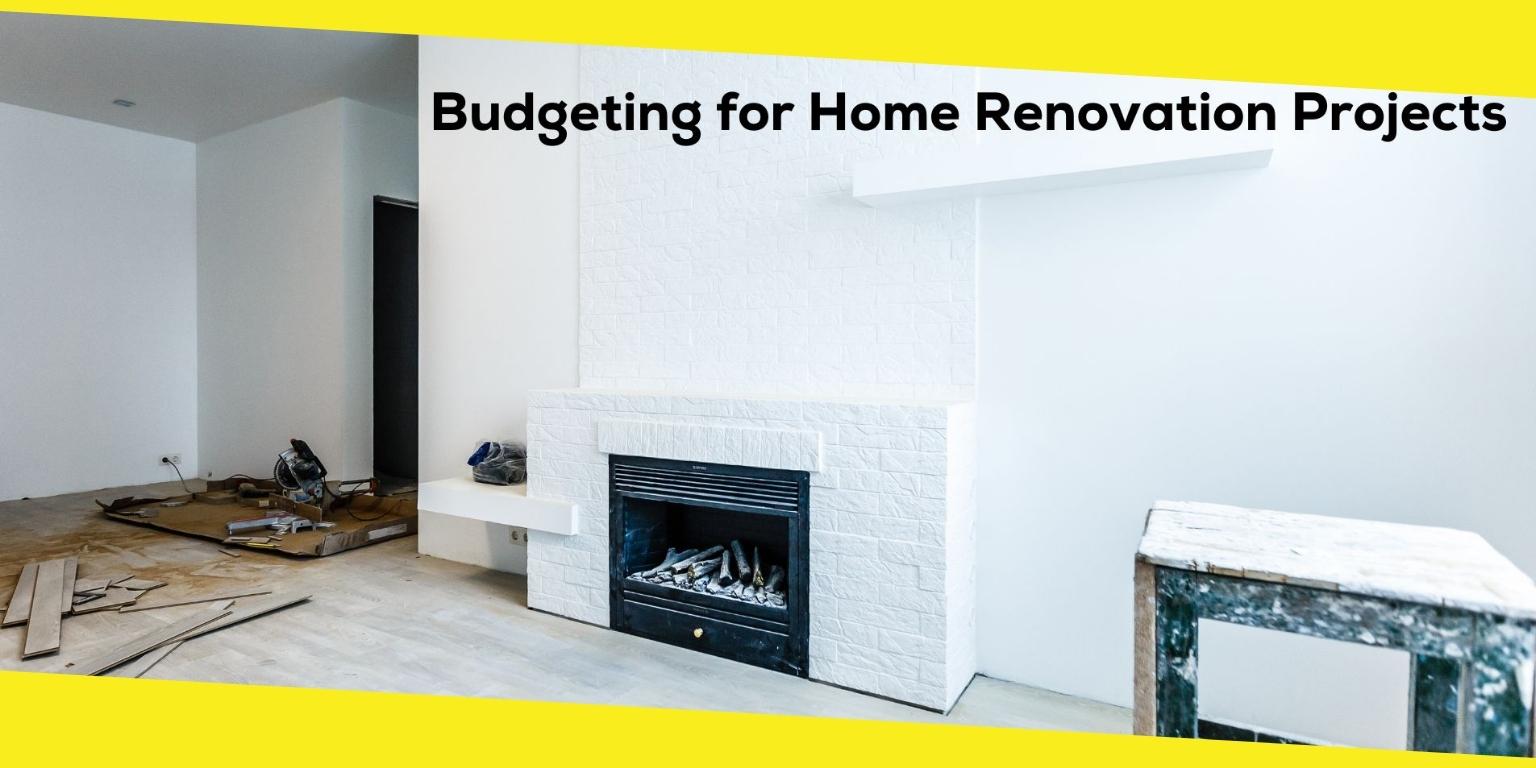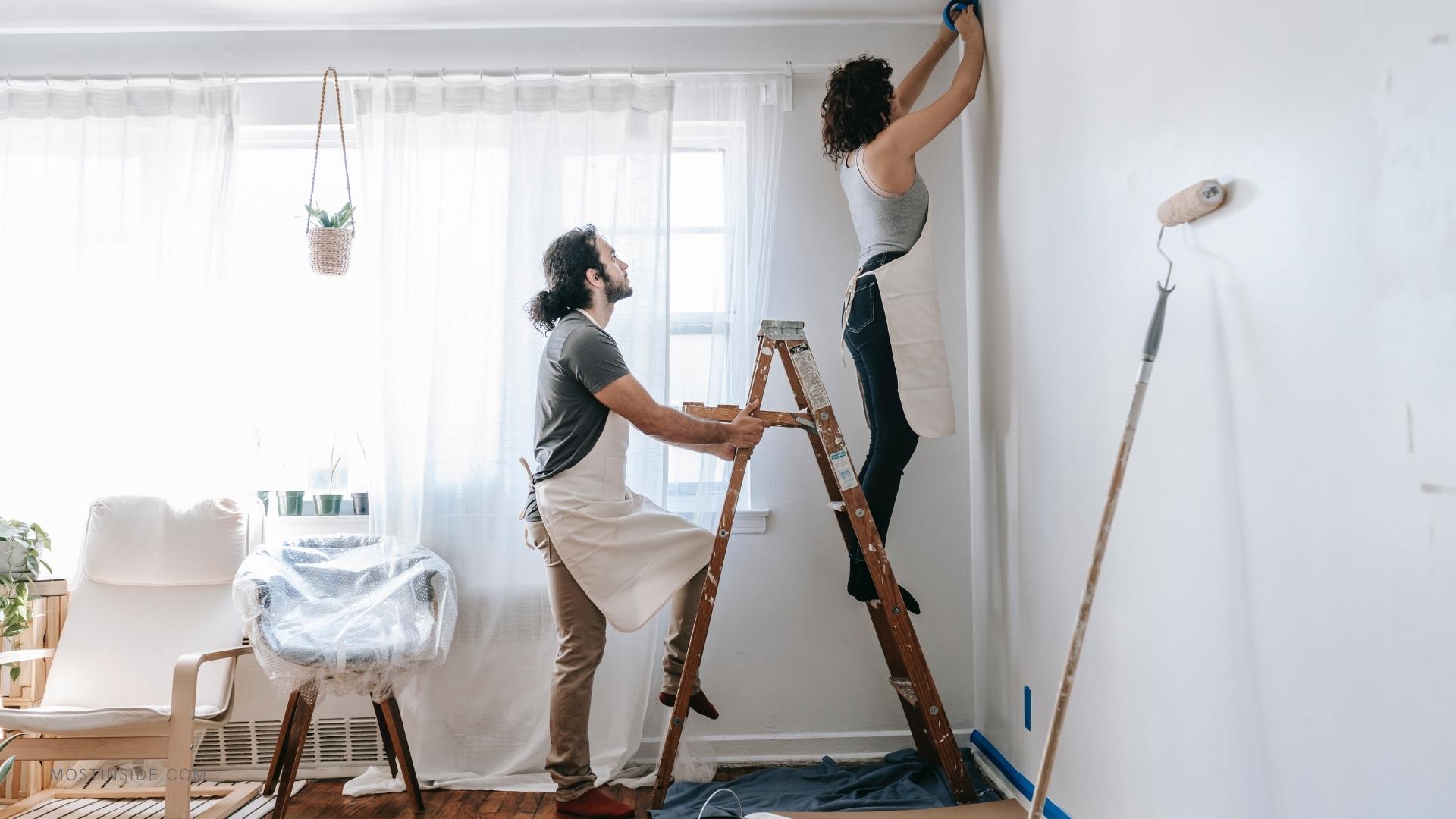Budgeting for Home Renovation Projects: A Complete Guide

Home renovation is an exciting moment for homeowners but is also something that can easily spin out of control. You might have been planning to install a new kitchen floor but you realize how it clashes with your cabinets. So you decide to upgrade those and slowly start considering other changes.
Before you realize it, what was supposed to be a $3,000 renovation project skyrocketed to $30,000. To avoid this, you need to plan your budget and renovation plans accordingly.
You can complete a beautiful renovation without worrying about bankruptcy and we’ll show you how. We’ll teach you how to create a smart budget plan while increasing your home’s value!
How Much Does Home Renovation Cost?
This depends on what you plan to renovate and how much of it you can do yourself. Take floor renovations for example. The materials alone can be costly, especially if you’re aiming for luxury vinyl flooring. It can cost $10-60 per square foot but some projects may cost up to $150 per square foot.
Let’s say you live in a 1,000-square-foot home so renovations will cost around $10,000 to $60,000 on average. The price only doubles if you live in a 2,000-square-foot-home and it’s more expensive to remodel an old home. This is especially true if their wiring, plumbing, and other vital features aren’t up to date.
That said, it’s highly important to strategize your approach, such as renovating by room instead of a complete home overhaul.
How Much Should Homeowners Spend on Home Renovation?

The rule of thumb when it comes to spending on home renovation is to get your home’s value as a whole. And then, you should never spend more than 10-15% of your entire home’s value in one room. The more you spend on one-room renovation, the less proportional it would be to your home’s value.
For example, if you want to change the living room’s entire flooring, the total cost shouldn’t be more than your home’s whole value. We do agree that there are so many types of flooring to choose from. Several of them have aesthetic designs, especially luxury vinyl tiles.
It can be very difficult to know where to start but you can consult a design-build contractor to help. An initial consultation with them will guide you through the first step of home renovation. Over time, their guidance will help you finish the whole project within your means.
How To Create a Complete Home Renovation Budget Plan
a. List Down Your Renovation Priorities
Usually, you’d renovate your home because there’s a need that isn’t met by your current living situation. It may come from having to change the flooring due to a busted pipe or you just want more space.
Regardless of your reasons, having a plan is crucial to avoid overspending. The first part of the plan is to make a list of your renovation priorities and goals. For example, your priority is the living room flooring, followed by the furniture. Then maybe you’d want to replace your living room TV somewhere down the line.
That way, you at least avoid getting sidetracked often. When you go shopping for materials, you’ll shop for tiles first and then look for furniture that matches well with it.
b. Cost vs. Value: Is Your Renovation a Good Investment?
After prioritizing your renovation needs, it’s time to look up your project’s cost vs. value. Even in home renovation, return on investment (ROI) is important to keep in mind. Earlier, we mentioned that it’s best to find out your home’s value so you don’t spend more than 15% of it on renovation. This applies best if you intend to sell the house in the future.
After seeing your project’s cost vs. value report, you’ll see which projects are worth pursuing. The report should include the most common remodeling projects and their resale value. Will an upscale garage door replacement increase your home’s value? Will using luxury vinyl tiles be beneficial in your daily life?
c. Get Outside Opinion From Those Who Finished Similar Renovations
It’s always a big help to discuss your renovation project with someone who’s experienced. We don’t mean the contractors but other homeowners who had their room renovated too.
For example, someone who renovated their bathroom before might know what to recommend if you plan to install a tub. You can talk to them about smart ways to buy materials and supplies. In the same vein, they can tell you the don’ts of renovating a bathroom.
d. Make a List of Goals for Contractor Bids
You might ask how different is this from listing down your renovation priorities. By having a list of specific goals for your contractor, you’ll have an accurate cost estimate of the plan. It should be detailed enough to contain the major structural and cosmetic changes you want.
For example, you want your kitchen to have new cabinets, wallpapers, and tiled backsplash. You can’t miss the new appliances and their brands on that list too. If done well, your contractor shouldn’t have a problem giving you an accurate bid.
e. Obtain Bids From Different Contractors to Compare
If you intend to hire a general contractor, we recommend getting bids from three different contracts. The bids may differ greatly from each other because a contractor may be busy or charges a hefty percentage.
Many contractors usually charge between 10-20% of the renovation’s total cost. The total cost refers to the materials, supplies, labor, and other requirements needed to get the job done. Not to be distrusting, but we recommend being wary of contractors who give you deals that sound too good to be true.
If two of the contractors say that your project may cost $20k to $30k and one says they can do it for $10k, that’s suspicious. It may mean that the contractor is lying or they’re inexperienced.
Conclusion
If it’s your first time renovating, it can feel overwhelming and you might not know where to start. But looking up guides can be a big help in getting started and completing your project. For example, knowing the average cost of home renovation and how it’s calculated is a good start.
Then you need to know how to make a budget plan for the entire renovation project. You begin by listing down your priority renovations and then assessing their cost vs. value. That way, you won’t invest more than you’ll gain back if you sell the house.
Consulting other homeowners who renovated a similar space would also be a big help since their experience will guide you. Knowing the dos and don’ts of home renovation will save you a lot of money. And of course, when obtaining bids from contractors, make sure to have a specific list of goals so your bid will be as accurate as possible.
Recommended For You
Rolling By: Essential Tips To Make Your Home Wheelchair Accessible
Most Inside
Most Inside offers high-quality recommendations and valuable updates to enhance all aspects of your life, providing premium guidance and enriching experiences.




